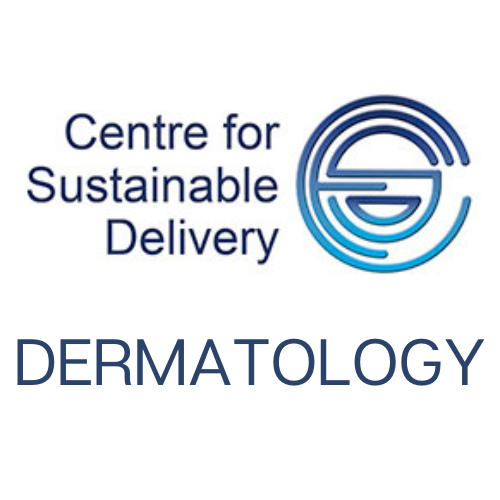Mild: localised plaques with limited impact on quality of life usually managed with topical treatment
Assess lifestyle factors that may precipitate or aggravate psoriasis i.e. smoking, alcohol, obesity, certain medications and infections.
Emollients – prescribe to soften scale (use fingertip measurement)
Vitamin D with Steroid combined:
- Ointment, Cream, Gel, Foam: Apply OD for 4 weeks, review and repeat as necessary
Calcipotriol with Betamethasone preparations:
Non-branded ointment
Dovobet®, Dalonev®, Dalbecal® ointments Dovobet® gel
Wynzora® cream
Enstilar® foam
Useful for plaques on body and limbs. Not suitable for face or flexures.
Vitamin D preparations:
- Calcipotriol (non-branded) ointment and l scalp solution apply OD/BD
Calcipotriol (Dovonex®) ointment apply OD/BD
Calcitriol (Silkis®) ointment apply BD
Tacalcitol (Curatoderm®) ointment or lotion apply BD.
NB: Calcitriol and Tacalcitol may be less irritating than Calcipotriol and may be more suitable for sensitive areas like face and genitals.
Topical Corticoteroids:
- Mild: OD facial psoriasis
Moderately potent: OD face and flexural areas
Potent: OD trunk/limbs, BD palms/soles
Coal Tar Preparations:
- Cream-Psoriderm® apply OD/BD
- Lotion-Exorex® apply OD/BD
- Shampoos: - Neutrogena T-Gel®, , Psoriderm®,
Polytar®, Capasal® (with salicylic acid), use up to OD
Coal Tar + Salicylic acid and Sulfur:
- For scalp psoriasis mainly
Cocois® ointment 100G apply up to OD
Sebco® ointment 100G apply up to OD
Moderate psoriasis: Localised site or more widespread psoriasis > 10% body area
Scalp psoriasis:
- Prescribe a regimen of coconut, tar and salicylic ointment (Sebco/Cocois) applied OD for an hour or overnight and wash off with tar-based shampoo to soften and remove thick scale. Reduce frequency as improves.
- Apply potent or very potent topical corticosteroid scalp solution / gel / foam (e.g. betamethasone +/- salicylic acid, clobetasol) OD after shampooing or, Vitamin D preparation, gel / foam OD, or corticosteroid + vitamin D (e.g. Dovobet® gel).
Facial/Flexural psoriasis:
- Steroids: mild/moderate potency topical corticosteroid OD
Vitamin D preparations: Calcitriol / Tacalcitol OD/BD may be used as less irritant than Calcipotriol
Calcineurin inhibitors (e.g Protopic®) may be helpful but should be initiated by specialist.
Nail psoriasis:
- Treatment difficult, keep trimmed, potent topical corticosteroid or Calcipotriol with Betamethasone combination OD may help
PalmoPlantar Pustulosis:
- Associated with smoking.
Steroids, potent or very potent topical corticosteroids OD/BD
Calcipotriol with Betamethasone combination ointment OD
Guttate Psoriasis:
- Widespread small plaques, self-limiting, often triggered 7-10 days after streptococcal URTI.
Will often resolve spontaneously in weeks to months, useful treatments include:
Mildly potent topical corticosteroid OD
Vitamin D preparations OD
Coal tar preparations OD
- Refer to secondary care for consideration of phototherapy and/or first line systemic therapy with Methotrexate, Ciclosporin or Acitretin for moderate to severe psoriasis failing to respond to treatment.
Treatment failures with phototherapy and first line systemic therapies may require novel systemic therapy with phosphodiesterase type-4 inhibitor (Apremilast) or biologic therapies.
Severe psoriasis: Widespread inflamed psoriasis or severe localised recalcitrant psoriasis (e.g. palms and soles) or affecting high impact sites like face or groin.
Refer same day to dermatology/ emergency care for erythrodermic or generalised pustular psoriasis
Refer to rheumatology if any evidence of psoriatic arthropathy.
